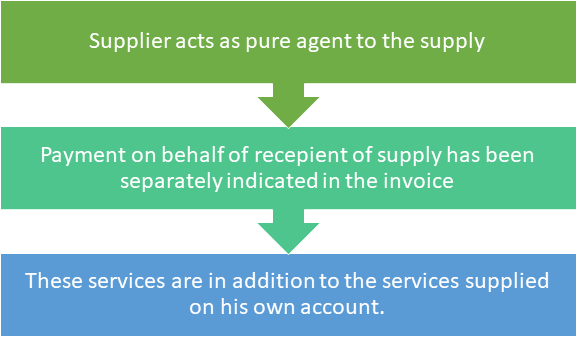Nitu Poddar, Senior Associate (corplaw@vinodkothari.com)
Introduction
Since the amendment in the CSR provisions on 22.01.2021, even the existing eight year old provision has gained substantial attention and deliberation by the stakeholders. This article is to discuss yet another topic on CSR which is “whether amount spend towards Corporate Environment Responsibility (CER[1]) stipulated as specific condition under Environment Clearance by the Ministry of Environment, Forest and Climate Change (MoEFCC) can be included as a CSR project?” In other words, whether CER obligations can be merged with CSR obligations or are these two mutually exclusive.
What is CER?
Industrial sectors (specified in the Environment Impact Assessment (EIA) Notification 2006 dated September 14, 2006[2]) which have direct environmental footprint are required to take prior Environment Clearance (EC) from the MoEFCC before setting up any new project / expansion / modernisation of an existing project / change in the product-mix. While granting such EC, the Ministry puts certain conditions (requirements) on the applicant (referred as Project Proponent (PP) in two categories – specific conditions and general conditions – implementation of which, if unsatisfactory, the EC may be revoked. One of such specific condition imposed by the MoEFCC while granting EC is that the applicant should undertake CER / ESC which is to be based on the local needs and should be restricted to the affected areas around the proposed project.
As per Office Memorandum[3] (OM) No. F. No. 22-65 / 2017-IA.III of MoEFFC dated May 01, 2018,
Some of the activities which can be carried out in CER, are infrastructure creation for drinking water supply, sanitisation, health, education, skill development, roads, cross drains, electrification including solar power, solid waste management facilities, scientific support and awareness to local farmers to increase yield of crop and fodder, rain water harvesting, soil moisture conservation works, avenue plantation, plantation in community areas, etc.
Unlike CSR, CER is based on project cost and not profits made by the proposed project. The obligation of CER is within the range of 2.5% – 5% of the project cost.
Why CER?
The MoEFCC, in its Office Memorandum (OM) No.J-11013/25/2014-IA.I dated August 11, 2014, discussed that since the CSR obligation is based on profits, there might be cases where the proposed project is yet to make profit. In such case, since the project will have already created impact on the society and environment, it is required to commit towards the same, irrespective of profits, through CER commitment. Further, as per the 2018 OM, all the activities proposed under CER is also required to be monitored and reported bi-annually and also posted on the website of the company.
Anomaly created by different OMs and correspondences of MoEFCC
Considering that the activities undertaken pursuant to CER are akin to the one of the activities prescribed under schedule VII of the Companies Act, 2013 – specifically “ensuring environmental sustainability” among others, it is intuitive to say that expenditure towards CER should be includes as compliance of CSR commitment.
However, on perusal of several OMs and summary record of meeting of the Expert Appraisal Committee (EAC), formed under MoEFFC, one may have to re-think on the above ratio. The relevant extracts of the OMs and summary record are reproduced below for perusal:
- [4]2014 OM:
- ….In case these activities (or some of these activities) are proposed to be covered by the project proponent under CSR activities, the project proponent should commit providing for the same. In either case, the position regarding the agreed activities, their funding mechanism and the phasing should be clearly reflected in the EC letter.
Author’s Comment: This indicates that overlap might be acceptable provided the commitment is clear from the beginning.
- [5]Summary record of 2nd meeting of EAC – 2015 –
The Member Secretary has informed the Committee that presently the Expert Appraisal Committee has been insisting for earmarking either 2.5% of the total cost of the project or 5% of the total cost of the project towards Enterprises Social Commitment / Corporate Social Responsibility, depending upon the size of the project. In this context, copy of Office Memorandum No. J-11013/25/2014-IA.I dated 11.08.2014 issued by the Ministry regarding guidelines on Environment Sustainability and CSR related issue was circulated. Deliberating on the issue, the Committee was of the view that the name of ‘Enterprises Social Commitment’ or ‘Corporate Social Responsibility’ in respect of environment clearance should be in the first place considered for replacement by the name ‘Environmental Conservation Support Activities’.
Author’s Comment: From this discussion, it seems that the terms ESC / now CER and CSR have been used interchangeably and therefore CER and CSR commitment can overlap.
However, in the same paragraph, the decision taken by the EAC has been recorded as follows:
The Committee unanimously agreed for uniform earmarking 2.5% of the capital cost of the project towards Environmental Conservation Support Activities, in addition to the committee’s [this seems to be a typo error- should be “company”] commitment under the Companies Act.
Author’s Comment: This indicates that CER and CSR are two independent commitments and responsibility of the company and both have to be individually followed and fulfilled.
In one of the scrutiny and deliberation as discussed in the summary records, in the matter of Expansion of Cement Plant, Clinker (1.8 MTPA to 2.6 MTPA) at Village Rauri, Tehsil Arki, District Solan, Himachal Pradesh by M/s Ambuja Cement Ltd. [F. No. J-11011/986/2008-IA-II (I)], one the specific condition was as follows:
- At least 5 % of the total cost of the project shall be earmarked towards the Enterprise Social Commitment based on Public Hearing Issues and item-wise details along with time bound action plan shall be prepared and submitted to the Ministry’s Regional Office at Dehradun. Implementation of such program shall be ensured accordingly in a time bound manner.
The project proponent mentioned that they have already spent an amount of 3.01%, 4.06% and 2.57% of the net profit after tax (PAT) towards CSR activities in the year 2012, 2013 and 2014 respectively in compliance of the Companies Act 2013. It has been requested to consider the proposal to waive-off the Specific Condition No. XV, as mentioned above.
The Committee noted that the expenditure of 5% of the total cost of the project towards ESC was prescribed for a period of 5 years. Based on the discussions, held the Committee decided that instead of waiving off the specific condition, it is recommended to extend the implementation period of 5 years for implementing ESC activities to a period of 10 years, which the proponent had also agreed to.
Author’s Comment: This again seems to indicate that MoEFCC is not inclined to mix the CER commitment with the CSR commitment.
- [6]Summary record of 2nd meeting of EAC – 2016 –
In all the ECs being granted, as a part of specific condition, the CER commitment has been recorded as below:
At least 2.5% of the total cost of the project shall be earmarked towards the Enterprise Social Commitment based on Public Hearing issues, locals need and item-wise details along with time bound action plan shall be prepared and submitted to the Ministry’s Regional Office. Implementation of such program shall be ensured by constituting a Committee comprising of the proponent, representatives of village Panchayat and District Administration. Action taken report in this regard shall be submitted to the Ministry’s Regional Office.
In addition to the above provision of ESC, the proponent shall prepare a detailed CSR Plan for the next 5 years including annual physical and financial targets for the existing-cum-expansion project, which includes village-wise, sector-wise (Health, Education, Sanitation, Skill Development and infrastructure etc) activities in consultation with the local communities and administration. The CSR Plan will include the amount of 2% retain annual profits as provided for in Clause 135 of the Companies Act, 2013 which provides for 2% of the average net profits of previous 3 years towards CSR activities for life of the project. A separate budget head shall be created and the annual capital and revenue expenditure on various activities of the Plan shall be submitted as part of the Compliance Report to RO. The details of the CSR Plan shall also be uploaded on the company website and shall also be provided in the Annual Report of the company.
Author’s Comment: The view of keeping CER and CSR as two independent commitments seems to being continued.
- [7]2018 OM (supersedes 2014 OM) –. Relevant extracts have been reproduced:
(I) The cost of CER is to be in addition to the cost envisaged for the implementation of the EIA/EMP which includes the measures for the pollution control, environmental protection and conservation, R&R, wildlife and forest conservation/protection measures including the NPV and Compensatory Aforestation, required, if any, and any other activities, to be derived as part of the EIA process.
XXX
(IV) The proposed activities shall be restricted to the affected area around the project.
(VI) The entire activities proposed under the CER shall be treated as project and shall be monitored. The monitoring report shall be submitted to the regional office as a part of half-yearly compliance report, and to the District Collector. It should be posted on the website of the project proponent.
XXX
Author’s Comment: The provision with respect to commitment of any particular CER activity as CSR, as was present in the 2014 OM, has been dropped.
- [8]Minutes of 53rd meeting of EAC (Infrastructure-2) held in 2020:
While presenting the parameters of the Project to obtain EC, Tamil Nadu Waste Management Limited, represented as follows:
(xi) The CER fund shall be allocated as per the MoEF&CC office memorandum F.no.22- 65/2017-IA.III dated, 1st May, 2018, which is around Rs. 0.48 Crores which shall be utilized over a period of 3 years. The CSR budget will be allocated as per rules prescribed by the Government of India / Companies Act 2013.
- [9]Standard EC Conditions – MoEFCC OM No. F.No. 22- 34/2018-IA.III dated 9th August 2018:
7. Corporate Environment Responsibility
XXX
- The company shall have a well laid down environmental policy duly approve by the Board of Directors. The environmental policy should prescribe for standard operating procedures to have proper checks and balances and to bring into focus any infringements/deviation/violation of the environmental / forest /wildlife norms/ conditions. The company shall have defined system of reporting infringements / deviation / violation of the environmental / forest / wildlife norms / conditions and / or shareholders / stake holders. The copy of the board resolution in this regard shall be submitted to the MoEF&CC as a part of six-monthly report.
iii. A separate Environmental Cell both at the project and company head quarter level, with qualified personnel shall be set up under the control of senior Executive, who will directly to the head of the organization.
- Action plan for implementing EMP and environmental conditions along with responsibility matrix of the company shall be prepared and shall be duly approved by competent authority. The year wise funds earmarked for environmental protection measures shall be kept in separate account and not to be diverted for any other purpose. Year wise progress of implementation of action plan shall be reported to the Ministry/Regional Office along with the Six Monthly Compliance Report.
- Self environmental audit shall be conducted annually. Every three years third party environmental audit shall be carried out.
Author’s Comment: Looking at the elaborative independent requirements / compliance in respect of CER, the view about the intent of the Ministry to keep CER independent of CSR gets stronger
Provisions of Companies Act, 2013
It is also pertinent to note that pursuant to Rule 2(d)(vi) of the Companies (Corporate Social Responsibility Policy) Rules, 2014 ,“activities carried out for fulfilment of any other statutory obligations under any law in force in India” is excluded from the definition of CSR. The idea behind this exclusion seems to be that what a company is obligated to spend as a part of its statutory obligation is anyway a mandatory condition. Such statutory compliance, even if it results into a spending, cannot be regarded as CSR spending. An example may be payment of taxes many of which are dedicated to infrastructure activities. Swachh Bharat Cess is specifically towards cleanliness. However, one cannot take such an expense as a spending towards CSR. Hence, (CSR) responsibility and statutory obligations cannot be inter-mixed.
Difference between CSR and CER
While already discussed above, the difference in CER and CSR is being highlighted:
- CSR spending is profit-linked whereas CER spending is project cost-linked. Hence, CER may, at times be applicable even before the company has started making profits.
- Another major difference between EC-triggered spending and CSR spending is that there is a wide range of activities which may qualify as CSR. However, the EC forces these activities to be focused and restricted around village/social development in the areas affected by the project only. In that sense, the EC forces the entity to give back to the local area where the company has an environment footprint.
Conclusion
While it would have been rational to include CER under CSR, but this seems to be grey in terms of clarity, both legally and practically. There are two school of thought that is being endorsed – one, that the CER and CSR are two different statutory obligation under two different ministries and therefore should be honoured independently; the other, and more logical argument is that both the commitment are meant to return back to the society and environment on which the company has left its footprint. Accordingly, taking a view that CER and CSR commitments are mutually independent would be putting the company to double compliance for a single objective. Considering that CER is applicable, irrespective of profit, the same should ideally be aligned with CSR plan of the company where section 135 of Companies Act, 2013 is applicable.
While this question may lurk until there is any explicit clarity from either of the ministries, from the bi-annual disclosure on compliance report being submitted by the companies, it seems that India Inc is divided on this matter.
[1] CER has also been termed as Enterprise Social Commitment (“ESC”) in several ECs granted to applicants. Later, in the Office Memorandum (OM) No. F. No. 22-65 / 2017-IA. .III of MoEFFC dated May 01, 2018, the terms CER was used.
[2] https://parivesh.nic.in/writereaddata/ENV/EnvironmentalClearance-General/18.pdf
[3] http://environmentclearance.nic.in/writereaddata/public_display/circulars/OIEBZXVJ_CER%20OM%2001052018.pdf
[4] http://environmentclearance.nic.in/writereaddata/OMs-2004-2021/158_OM_11_08_2014.pdf
[5] http://environmentclearance.nic.in/writereaddata/Form-1A/Minutes/0_0_21122122412101Final-MinutesoftheMeeting,2ndEAC,28th30thDecember2015EACmeeting.pdf
[6] https://environmentclearance.nic.in/writereaddata/Form-1A/Minutes/23062016PBRL5BUAMinutesofthe7thEAC30thMay-Final.pdf
[7] http://environmentclearance.nic.in/writereaddata/public_display/circulars/OIEBZXVJ_CER%20OM%2001052018.pdf
[8] http://www.environmentclearance.nic.in/writereaddata/Form-1A/Minutes/01082020DHCMPRSFFinalMinutes53rdEAC(Infra-2).pdf
[9] http://environmentclearance.nic.in/View.aspx?rid=30






